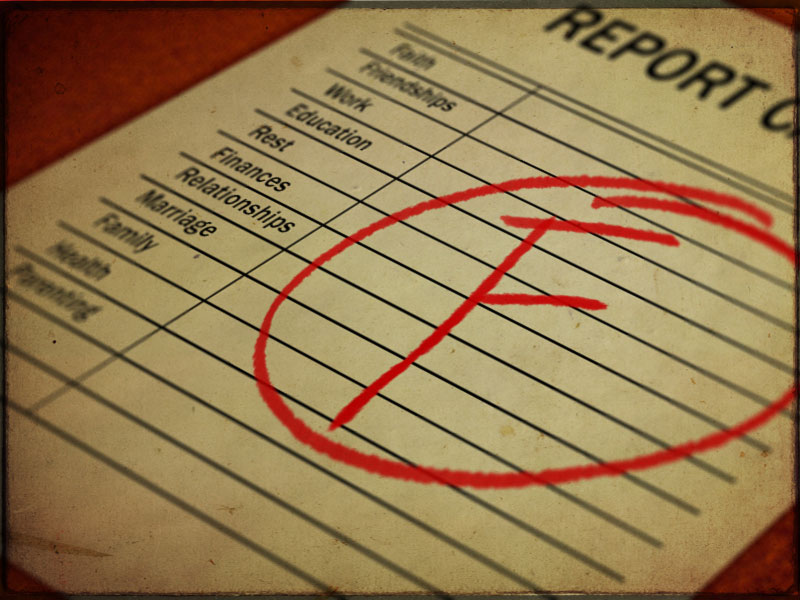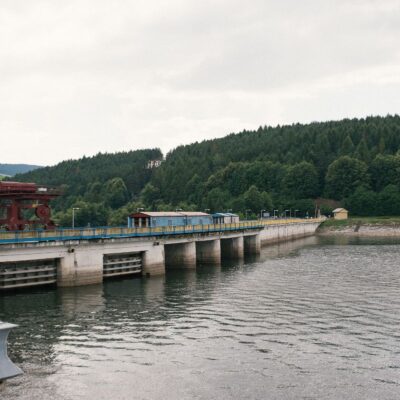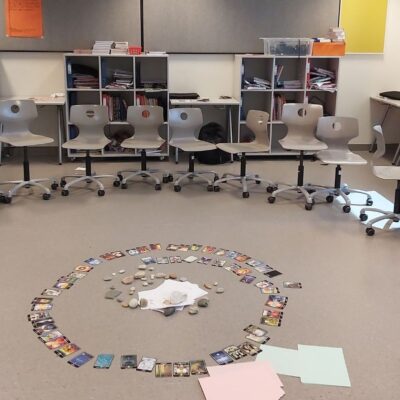
My kid brought home her first failing grade last week. It wasn’t entirely unexpected as she’s not really connected meaningfully with the teacher or the subject matter.
The experts talk about how essential it is to let our kids fail. It’s going to happen when we’re adults, so practice on the little things when you’re a kid so you can know how to deal with it. The school espouses a value that “mistakes are encouraged here because it means you’re trying something new.”
I absolutely agree with these sentiments. I also believe that failure is only valuable if you’re learning something from it. So I was eager to dig in to this new experience with her. And then quickly shocked at how the conversation unfolded once she got past the feelings of failing for the first time.
Me: So, what did your teacher say when he gave you the mark?
Her: Nothing. He just gave me the paper.
Me: He didn’t suggest you talk about it later?
Her: No. He just offered to let me take the short test the next time…that’s the one for dumb kids.
Instead of a beautiful opportunity to learn how to fail well, it was everything that failure shouldn’t be.
Failure as a Learning Opportunity
When a person succeeds at something, it’s pretty easy to learn “these results were good, I’m going to do it like this again.” When a person fails at something, it can get swept under the rug as it did in my story. In sweeping it under the rug, all that’s learned is how to hide, feel shame, and confusion at what went wrong. Failure quickly becomes something to avoid at all costs.
But it can also be a prime opportunity for learning.
Performance management doesn’t stop at the point of “we succeeded in this goal” or “we failed in this goal”. In the school example, performance management is everything that happens after that failing grade is assigned. In a workplace example, it’s everything that happens when the project falls apart or a milestone or goal fail to be met. Optimal learning happens when you make time and space to reflect on “how we succeeded” or “how we failed”. What skills were used successfully? How about the skills that need to be strengthened? What skills or capacities were missing? Do we need to cultivate them to be able to succeed next time?
When review like this happens, especially if it happens on a regular basis, the culture becomes one of constant learning. Each person continually evaluates and works to strengthen new skills and capacities to do work better, more creatively, and more productively. In turn, the organization is constantly developing its capacities, setting itself up for future successes far beyond what is possible right now.
Teaching and Learning about Failing
In the Genuine Contact way of working, we make use of the Medicine Wheel Tool. A LOT! In business, the quadrant in the West is Management. It’s all about doing the work. Management draws on the archetype of the Teacher/Learner to support getting the work done.
Failure as a learning opportunity is a prime example of the Teacher/Learner archetype in action. As the teacher or leader, taking responsibility to build in opportunities for reflection when a milestone is achieved, a goal met, or a project completed (or not). As the employees reflect on what worked and what didn’t, they are learners learning about what skills, capacities and processes they want to incorporate into the next milestone, goal or project. The Teacher or leader becomes a learner too as the employees teach them what is needed for the organization to better succeed next time. This natural cycle of teaching and learning accelerates growth and improves outcomes for the individual employees, their team and the organization as a whole.
Applying this Lesson to your Successes Too
I know earlier I said that it’s pretty easy to learn to do something again when you’re successful at it, I want to close by saying that this process of learning when a project is complete is just as important when you achieve success. What went well? What do you want to do again? What did you do that went well and could be improved? And, even in the success, what parts didn’t go well that you might like to adjust going forward?
When we take time to reflect like this as project milestones are achieved and business goals are met, the organization is continually learning how to do better next time.
Photo by amboo who? on Flickr









Leave a Reply